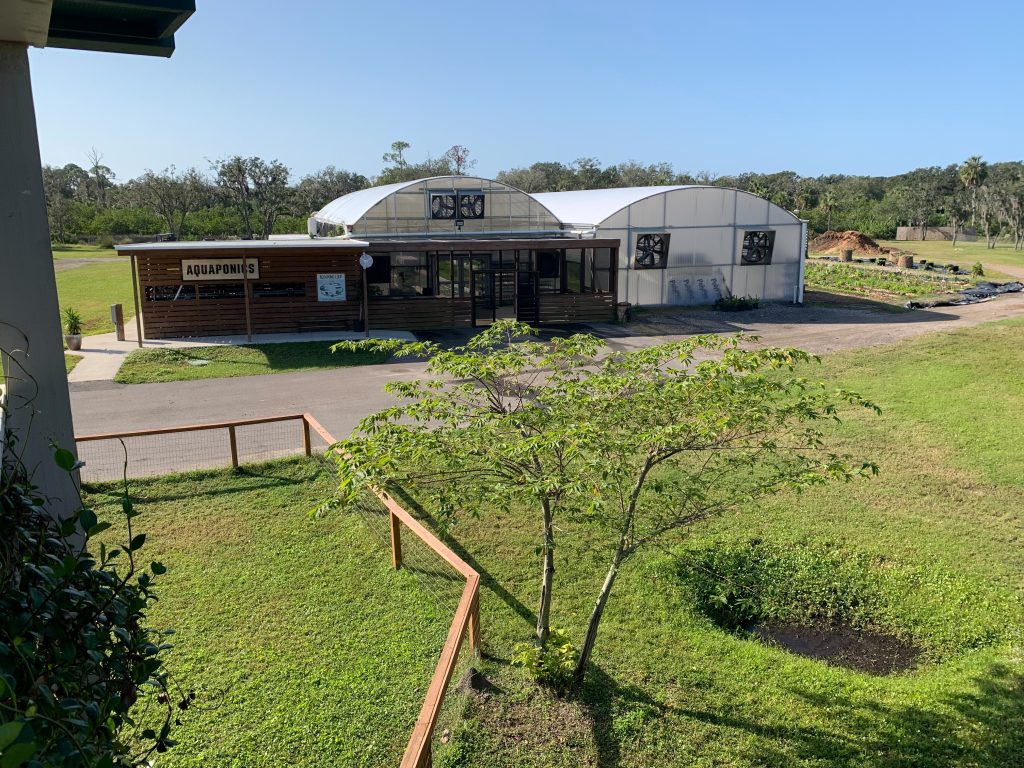When you’re driving down Hillsborough Avenue, it may be difficult to imagine anything healthy and delicious could flourish among the strip malls and housing developments.
Less than half a mile from Race Track Road, however, there’s a suburban oasis that does just that, and it’s called Fat Beet Farm.
I visited the farm for the first time on a bright and sunny Sunday morning, and when I turned into the parking lot, I felt like I was miles away from the hustle and bustle that surrounded me just moments before. I had signed up online for a tour of the farm, and was greeted warmly by my tour guide, Josie Rothschild.
In 2013, Rothschild’s parents, Jen and Tim Curci, purchased an undeveloped strip of land that stretches from Hillsborough Avenue to the water, and encompasses 700 feet of shoreline along the Upper Tampa Bay. The Curcis dreamt of opening a restaurant with a garden that would supply fresh fruits and vegetables to its kitchen. Fat Beet Farm became so much more.
According to Rothschild, her dad is the head chef and a seasoned restauranteur, while her mom takes the lead when it comes to farming and growing crops. Together, the Curcis have created a sustainable farm that uses a solar grid for power, rain collection bins for water and a bio-digester to compost any organic waste they produce. They grow a plethora of fruits and vegetables that are served fresh, cooked and/or baked into delectable creations that can be purchased at the Fat Beet Farm Kitchen & Bakery.
As we started our walking tour, Rothschild introduced us to Fat Beet’s Food Forest, where they grow crops like guavas, bananas, figs and avocados, most of which aren’t typically found in local gardens. Next up was the Beet Garden, which, despite its name, grows much more than beets. Rosemary, lavender, sage, mint and ginger are just some of the herbs that Jen Curci and her crew have planted there.
We continued walking, and Rothschild pointed out The Barn, which is a newly built 5,000-square-foot event space for as many as 200 people.
We made our way to the Coop Barn, which is home to approximately 30 chickens and three goats, Tom, Parker and Wellzie. The chickens lay eggs which are used in the kitchen, and they live in what Rothschild described as a self-cleaning coop, with the floor composed of layers of compost. Next, we climbed the stairs in the barn to the open-air Coop Lookout, which hosts private events for up to 30 guests
After visiting the barn, we got a behind-the-scenes look at Fat Beet’s aquaponics system, which uses the waste of approximately 175 freshwater tilapias to fertilize water which is then pumped into the greenhouse and flows under the farm’s lettuce. The lettuce takes in the water and nutrients, and the leftover water returns to the fish tanks.
The system is powered by the sun, waste-free, reduces the need for harmful chemicals and requires less land than a traditional lettuce patch. Fat Beet uses aquaponics to grow more than 2,000 heads of 10 different varieties of lettuce each week. This is more than the kitchen can use on a weekly basis, so the farm sells lettuce on both a wholesale and retail basis.
We walked past the Herb Garden, where they grow kohlrabi, radishes, kale and more. There is also an apiary on site that’s home to 40 beehives. The bees, which are cared for by a company called Queen & Colony, produce black mango and Brazilian pepper honeys, which are used in the kitchen and sold at the market.
The bio-digester is the heart of Fat Beet Farm, said Rothschild. All of the food waste from the kitchen and the crops goes into the digester. There, it’s turned into nutrient-rich fertilizer and methane gas, which enables the farm to function without chemical fertilizers.
The final stop on the tour was the Microgreens Room, where they grow approximately 50 pounds of the young sprouts of many different herbs and vegetables each week. Microgreens contain far more nutrients than their full-grown counterparts and Fat Beet sells them to local restaurants.
When the tour ended, I visited the market and bakery, where there were a number of pre-prepared foods available to purchase. Fat Beet’s refrigerators were filled with tins of meatloaf, lemon chicken, maple dill roasted carrots and garlicky green beans, among other dishes. True to the farm’s name, there was also beet hummus, beet kimchi and beet microgreens.
The market and bakery sells biscuits, sandwiches, soups, quiches and freshly made salads. I opted for the power chicken sandwich, which included the lemon chicken, tomato, microgreens, white cheddar and honey mustard on sliced multigrain bread. It was delicious!
Fat Beet Farm offers both public and private tours, open-air yoga classes, educational field trips and other special events. They offer internships to students who are interested in sustainable agriculture, agritourism, and business, and welcome volunteers. They’re open from 8 a.m. to 3 p.m., Wednesday through Sunday. For more information, visit fatbeetfarm.com.




